- Home
- Неизвестный
8 Great Hebrew Short Novels Page 4
8 Great Hebrew Short Novels Read online
Page 4
At first they formed a trio for these readings. Gradually, though, Ida joined their little group too. Palely holding her white pillow, she would enter the room and sit listening silently in one of the corners with her arms crossed before her. Manya sat on the couch’s edge, one arm draped over the windowsill, while Rosa leaned against the back of the rocking chair, swaying slowly with it back and forth. Ensconced in red velvet, Hagzar read clearly and with controlled emotion from the volume that he held in his hands. Sometimes Manya asked a spiteful, disjointed question, which he did his best to answer without showing his distress. Sometimes Rosa challenged him too. In the beginning he deferred to her by blithely, almost shyly agreeing, yet soon he took to arguing back. And when she refused to back down—not with any great show of logic, to be sure, but with in an adamant way that spoke for itself—he concluded that she was a person with a mind of her own and rare properties of soul such as belonged only to those who have been through a great deal in life. If then he thought of that lively young man and of Rosa’s venomous barbs, he had to admit that she was deucedly attractive. If only, he mused bitterly, women’s souls were not such closed books to him, and this were not always fated to be the case, since his relations with the opposite sex were one irreparable mistake from the start.
For a moment he thought of his stout neighbor, whose buxom arms collided with his own whenever they walked side by side. Like the shadows of owls on frozen, moonlit nights, fleeting images arose and vanished in his mind. Though it made no sense at all, when he looked at Rosa’s pure, noble face her eyes reminded him for some reason of his own gray cat, which liked to sit perched on the red commode in his bedroom. Curiously, the thought of this amused him. Rosa had stopped rocking with the chair; her eyes shone and her cheeks were slightly flushed. Her voice, which trembled when she spoke with the excitement of the pleasures of the mind, brought him back to himself. At once he began to refute her, none too logically himself, stopping repeatedly to ask:
“Do you follow me? Well, do you?”
And when she did not he turned to face Manya, who sought at first to return his direct gaze. Soon, however, she had to lower her eyes; yet immediately this annoyed her; so that spitefully she stared back at him again until he began to falter and felt suddenly so stupid that he forgot what he was saying and turned back to Rosa once more, who still refused to concede the point, which compelled him to start all over again from the beginning.
Upon returning home late that night he climbed into bed and lay there reviewing the day’s thoughts and feelings and his hopes for the months ahead. He wished the winter would come. He was eager to get back to his work again, which had lately been neglected—although the fault was not his own but that of the circumstances in which he lived. As soon as the month was out he would rent a larger room in which it would be easier for him to concentrate, and everything would fall into place.
Thus the autumn went by. And one morning when the first gleaming coat of new snow lay upon the broad, empty streets and the gleeful caw of the crows sounded over the low, whitened roofs, Hagzar and Rosa, wrapped in a long woolen shawl, walked down the long street together until they came to a farmyard. A large, chained dog began to bark at them, while a fat sow squealed from beneath a summer cart that lay lamely in the middle of the white yard. A tall, sun-bronzed peasant woman came out to greet them. Her sleeves were rolled back and the edge of her apron, which was slick with grease, was tucked into her waist. With her tongue she kept searching for something in her gums or between her teeth, while burping repeatedly with a harsh, ringing sound that was accompanied by a smell of half-digested herring and onion.
Rosa addressed her by her patronymic. She spoke to her briefly, and they followed her to a large, low-ceilinged room with simple but ample furnishings, a clean white floor, lots of flowers, and a high bed standing in one corner beneath a mountain of pillows. Numerous pictures of generals on horseback galloped over the walls, and a few gloomy icons hung darkly in the corners.
That same day Hagzar moved in. In the evening Rosa and the girls came to visit. They praised the room and joked with the peasant landlady, laughing especially when she paused on her way out, pointed with a finger to the pillowy mountain, and declared:
“I do believe you’ll sleep well here…”
Then they took Hagzar back with them to their house. They read, talked, sang, and went out for a stroll again until it was well past midnight.
The next morning was overcast. Yesterday’s snow had turned into a gray gruel on the ground. The winds pounded on the shutters. Hagzar felt as though his soul were incubating within him. For a long time he sat on his new bed with his feet tucked beneath him and one hand supporting his head. Then he rose, turned up the collar of his buttoned frock coat, and paced slowly back and forth in the room, his left hand holding the collar in place while his right hand braced his left against his chest. After a while he sat down at his desk and remained immobile there with his pen aimed at a blank sheet of paper. Yet when he began to write, the round, carefully formed letters raced handsomely across the page. His face grew intense and excited. His breath came and went irregularly, and his movements were nervous and quick. With dizzying speed he filled lines and whole pages, and he did not stop to rest until he had finished a large and crucial section of his new article. Only when he had marked the final period with a large, black ink stain and had drawn a black line beneath the last sentence did he throw down his pen on the table with a sigh of relief. He leaned back in his chair, clasping his head from behind with both hands, and sat there with his eyes shut as though he were frozen stiff.
That evening he was hurrying home from the house of an acquaintance in order to get back to work. There was a bite to the distilled air outside. The last of the snow was turning gray on the eaves of the roofs. Far on the horizon the sky was streaked with a pale, congealed red. He strode vigorously over sharp, frozen clods of mud, thinking of how gay and relaxed spiteful Manya had been the day before. He thought of what he had written that day, and of what he planned to add to it that night, and felt heartened by the winter with its sleighs, its gleaming roofs, its raucous crows, and its snows that came from afar. When he decided to look in on the three sisters he found Rosa setting glasses out for tea. He rubbed his hands pleasurably together, stamped forcefully with his foot, and exclaimed in a triumphant voice:
“So it’s winter after all, Rosa!”
Chapter two
Though the winter had barely begun, Manya was already hard at work. Having failed to gain admission to the fifth form the previous spring, and having spent the whole summer “in a perfect fit” about it, she was determined to take the examinations for the seventh form the following spring, it being senseless to try forever for the fifth. For a tutor she had engaged the same young man who was a former acquaintance of Hagzar’s. To be sure, he was due to leave town soon, though no date had been announced for his departure; yet meanwhile a good deal about him was known in the pleasant house, both regarding his down-at-heel past with its tale of penury, privation, mad binges, police vans, artist friends sent to Siberia, and more yet that was shrouded in mystery, and the glorious future that lay strung out before him on a long chain of light, life, space, freedom, achievement, and renown. (In addition Manya alone knew of a certain pistol shot in a dark orchard and of a shirtsleeve with a bullet hole that he still happened to possess.) In any case he was a fine sight to behold when, his curls tumbling over his forehead, he sat perched like a drunk on the edge of his chair in the middle of the room with one hand on his knee and the other in the air, poised to fall on his second knee as soon as the Delphic mood possessed him and he began to quote from Nekrasov with a windy, excruciating sigh:
“Ekb, priyát’el! I ty, vidnó, goré vidál…”
“What a rascal of a fellow!” someone would be sure to exclaim then.
On winter evenings, sitting by himself or together with Rosa in the drawing room, Hagzar would listen as the insistent, slightly vexed drone of st
udy coming from Manya’s room repeated for the thousandth-and-first time, so it seemed to him, some perfectly trite phrase or cumbersome but trivial formula that was frequently interrupted by an irritable “the-devil-take-it!” At such times Ida, who had recently been forced by her health to stop attending the lycée again, might pass before him on her way out of Manya’s room. Her face pale and annoyed beneath its head of mussed hair, her faithful pillow in one hand and her heavy book open in the other, she would direct a silent, melancholy smile at him, as if to say:
—You know, and I know, that the poor child is wasting her time…but what good would it do to tell her?
Then she would slip into the other bedroom, whose half-ajar door opened onto the drawing room too, lie down diagonally across the two beds that stood there side by side, and read. Rosa would sit on the ledge of the stove, her knitting or a book in her lap, and Hagzar would sink deeper into his corner of the couch, or pace back and forth in the room, while they chatted and joked and fell silent again before beginning to hum some old tune. Sometimes, still swearing by the devil, Manya entered the room to inquire what time it was and worry why her tutor had not come yet. Hagzar would stare at her face, which warned against trespassing, and at her full, handsome shoulders beneath the blouse of soft muslin that caressed her alluring back, and would seek an excuse to converse with her; yet Manya, for some reason already on the defensive, would stare suspiciously back at him and answer as sharply as she could. Once, the Lord knew why, he asked her what her dreams were and who the lucky young man in them was. With wounded hauteur she turned her back on him, replying to him from the doorway in a harsh voice that seemed to bore upward from a hidden cavern in her chest:
“He’s not like the likes of you, I promise you that…”
Which made him break into an uncharacteristically loud laugh.
In the weeks before the Russian holidays Ida made a supreme effort to return to school, so as to be able to be promoted with her classmates, and succeeded so well that she even finished the term with honors. Yet soon afterwards the pains in her head and chest grew worse again, and often Hagzar found himself standing by her bed with a glass of water in one hand while Rosa quietly rubbed down her bare arms and chest with pungent spirit and Manya searched for something along the window-sills and under the couch with a stifled groan. In a barely audible voice Ida chattered by fits and starts; she whimpered about her dead mother, about skies like none she had ever seen and some great storm at sea, and about something else, something terribly important, that everyone kept taking for himself and leaving nothing of for her. She went on hysterically, laughing and crying at once, until Rose had to beg her in a frantic whisper to calm down and Manya’s movements grew still more exasperated.
At such times Hagzar grunted and twitched fretfully, alternately sipping cold water from the glass in his hand and sprinkling it over the pale face that was suddenly frozen in a spasm of new distress. Such crises did not last long, however. Soon Ida dozed off and they returned to the drawing room, where everything was as before. For a while they sat there in silence, letting the tension drain; then Manya went to her room while Rosa curled up on the stove ledge again and Hagzar settled into the couch. The door to the bedroom remained half-open, so that the shade-spreading lamp cast a dim light over the end of one of the beds and caused it to gleam in the dark. From her sickroom Ida continued to groan in her sleep, while Hagzar and Rosa sat talking and laughing in quiet tones before falling silent or breaking into hushed song.
At about nine o’clock Manya’s tutor would arrive. Now the intervals of silence were themselves intermittently broken by his rude oaths that drifted out of Manya’s room to dissipate in the hushed space of the drawing room. Later he might appear for a while to sit and banter with them, or to challenge Hagzar to wrestle. Sometimes he asked Hagzar whether he remembered this or that friend before turning to the others and relating to them with relish some comical incident from the time that the two of them had briefly shared a room in the city of H.
“One night when we were starving,” he would begin gustily, savoring his deliberately coarse speech, “I went to see a pal of mine, a real sport. He was busted himself but he offered to take us to some sausage and a small loaf of bread. So I took the grub and brought it back to Hagzar. The professor was lying in bed when I came, licking his chops. ‘On your feet,’ I said, ‘it’s chow time.’ You should have seen him jump out of bed. ‘What? Did you say food? Excellent, let’s have it. But…sau-sa-ge ?…”
Everyone burst out laughing.
The tutor raised his voice and concluded with brio:
“And what do you think happened in the end? My vegetarian friend ate a sandwich of bread on bread and went right to sleep!” With a merry cry he turned at last to the hero of his story. “I can see that by now you’ve had better sense drummed into you, eh? Come, let’s wrestle!”
And seizing Hagzar beneath the arms, he sought to throw him; while the latter struggled to squirm free and cried quits. Then all laughed again and talked some more and enjoyed themselves until late into the night. Even Manya grew gay and spirited, and her eyes shot sparks.
Yet when the tutor rose to go at last and Manya chose to walk him part of the way, a brooding silence descended again on the room, a silence that pressed on the heart like a soft caress, and squeezed, squeezed away at it with a mild, gently narcotic pain. Hagzar and Rosa sat dreamily, waiting to hear the noisy creak of the front door and the squeak of boots being hastily removed—which were sometimes followed by a low, defiant voice singing chestily from Manya’s room:
Ekh, ló-opnul obrùch
Ókolo maznítsy:
Trai-trrai-ti-ra-rai…
When it was finally time to bid Hagzar goodnight too, Rosa put on her large woolen shawl and, shivering a bit from the cold, accompanied him along the empty street that ran in front of the house. Sapphire crystals winked and glittered from the pure blanket of snow that had whitened the world. A dusky, reddish wreath festooned the moon. The trodden snow underfoot turned to slush with a merry squish and a light, amusing puff of smoke materialized with each breath. Hagzar talked in muted tones while she walked by his side and thought as she listened of how kind he was and of how agitated he grew each time he had to grope for a word; he was a person, she felt, who lived in a splendid world, and thought splendid thoughts, and had work that was splendid too. Guilelessly she began to tell him about the Bible tales she had studied as a girl with her brother at some rabbi’s; about the stories of Mikhailov-Scheler that had supplanted them as she grew older and become her constant companion; about books in general, for which she had such a passion; about her friends, who made fun of this; and about the strange sense of remoteness, the missing sympathy, that she felt nowadays when she met them. The more she talked, the more enthralled she became with her own account, every detail of which seemed so splendid to her, so full of life and enhancing of her own past, that she actually began to believe with all her heart that she too had had a past without knowing it. Not until her words began to fail, yielding to little gasps of weary, jagged laughter, did she notice Hagzar’s frequent grunts, which he struggled ineffectually to emit in token of his interest in her tale. Then her speech lost the last of its flow to ever longer silences, until it trailed off completely in the end—although not before one last, pitiable grunt on his part had prompted her to laugh weakly and to conclude as well as she could:
“Yes, time certainly has flown…”
By February of that year it began to thaw. In the morning hours the sun peered out, causing the snow to soften, the rooftops to drip, and the dazzling ponds to fissure and crack; yet toward evening fingers froze once more, jaws stiffened, and tasseled icicles reformed along the eaves. It was an hour at which Hagzar liked to visit the leafless park in the center of town. The snow lay in milky-white drifts there and the branches of the trees were stiff and bare. Crows screamed over the bright, desolate expanse. He wandered untrammeled along the winding paths, tracing sinuous lines
with his stick in the virgin snow and sometimes stopping to amuse himself by scrawling words in it.
Once he went for a walk in the park with Rosa. Her face was prettily flushed and the sound of her laughter rang like a child’s at play. The golden fringes at the ends of the white scarf that she had tossed back over her shoulders blew against the snug collar of her jacket. Hagzar was in a quick, gay mood that day. They laughed at everything they saw and spoke about, most hilariously of all at Rosa’s account of a dream that had woken Manya from her sleep the night before. Just imagine: darkness all around her, not a person in sight, so quiet you could hear a pin drop—and all of a sudden:
“This drunken rascal of a fellow appears. He chases after her with a revolver, and begins to shoot, ha ha…”
It really was so absurd…at which point Hagzar stepped to one side without warning, spread his arms wide, and flung himself with a playful cry backward into the pure snow, which collapsed beneath his weight. As soon as she recovered from her fright Rosa burst into such gales of laughter that she scared all the crows, which filled the park with their caws and noisily shook clumps of white snow down from the treetops. Hagzar looked into her bright eyes and called from where he lay with gay pathos:
“Man overboard! Why don’t you save me, Rosa?”
Rosa laughed even harder. She bent until her flushed, bright face nearly touched his own and seized the hands he stretched out to her. Slowly he pulled himself up, digging his heels into a hollow of snow and muscularly gripping her small palms; yet before he could regain his footing she stumbled herself and would have pitched helplessly forward had she not quickly grabbed his waist and sunk her head with a merry shriek into his overcoat at a point beneath his chest. He seized her beneath the arms and continued to hold her there for a moment after helping her up—until a sudden shiver ran through him at the changed sound of her laugh, which had grown strangely contorted, and he re-leased her. Then, without looking back at the “snowman” that his fall had made, the two of them walked home in silence.

 The Bolivian Diary
The Bolivian Diary Caffeine Blues_ Wake Up to the Hidden Dangers of America's #1 Drug ( PDFDrive )
Caffeine Blues_ Wake Up to the Hidden Dangers of America's #1 Drug ( PDFDrive ) The Empty House
The Empty House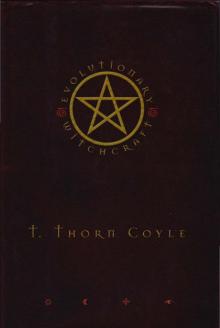 T Thorn Coyle Evolutionary Witchcraft (pdf)
T Thorn Coyle Evolutionary Witchcraft (pdf)![K J Emrick & Kathryn De Winter - [Moonlight Bay Psychic Mystery 01-06] - A Friend in; on the Rocks; Feature Presentation; Manor of; by Chocolate Cake; A-Maze-Ing Death (retail) (epub) Read online](http://freenovelread.comhttps://picture.efrem.net/img/nienyi/k_j_emrick_and_kathryn_de_winter_-_moonlight_bay_psychic_of_by_chocolate_cake_a-maze-ing_death_retail_epub_preview.jpg) K J Emrick & Kathryn De Winter - [Moonlight Bay Psychic Mystery 01-06] - A Friend in; on the Rocks; Feature Presentation; Manor of; by Chocolate Cake; A-Maze-Ing Death (retail) (epub)
K J Emrick & Kathryn De Winter - [Moonlight Bay Psychic Mystery 01-06] - A Friend in; on the Rocks; Feature Presentation; Manor of; by Chocolate Cake; A-Maze-Ing Death (retail) (epub) Next Day of the Condor
Next Day of the Condor Onyx
Onyx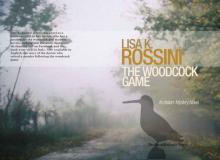 The Woodcock Game: An Italian Mystery Novel
The Woodcock Game: An Italian Mystery Novel Granta 122: Betrayal (Granta: The Magazine of New Writing)
Granta 122: Betrayal (Granta: The Magazine of New Writing) One More Dream
One More Dream Cosa Nostra by Emma Nichols) 16656409 (z-lib.org) (1)-compressed
Cosa Nostra by Emma Nichols) 16656409 (z-lib.org) (1)-compressed Cowboy by J. M. Snyder
Cowboy by J. M. Snyder Colossus
Colossus Star Trek - DS9 011 - Devil In The Sky
Star Trek - DS9 011 - Devil In The Sky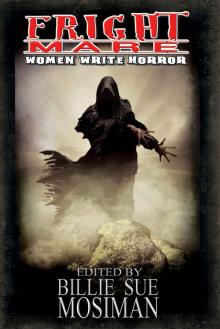 Fright Mare-Women Write Horror
Fright Mare-Women Write Horror The Future Is Japanese
The Future Is Japanese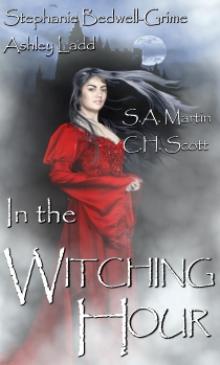 In the Witching Hour
In the Witching Hour Mammoth Books presents Wang's Carpets
Mammoth Books presents Wang's Carpets The Cradle King: The Life of James VI and I, the First Monarch of a United Great Britain
The Cradle King: The Life of James VI and I, the First Monarch of a United Great Britain Stalking Moon
Stalking Moon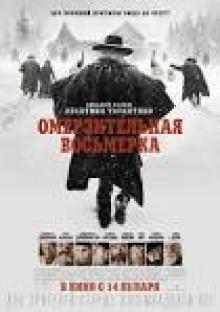 Hostage To The Devil
Hostage To The Devil![Harris, Daisy - Mere Passion [Ocean Shifters 2] (Siren Publishing Classic) Read online](http://i1.bookreadfree.com/i/03/23/harris_daisy_-_mere_passion_ocean_shifters_2_siren_publishing_classic_preview.jpg) Harris, Daisy - Mere Passion [Ocean Shifters 2] (Siren Publishing Classic)
Harris, Daisy - Mere Passion [Ocean Shifters 2] (Siren Publishing Classic) Day, Sunny - Hot in Space (Siren Publishing Ménage and More)
Day, Sunny - Hot in Space (Siren Publishing Ménage and More) Five Books Of The Lives, Heroic Deeds And Sayings Of Gargantua And His Son Pantagruel
Five Books Of The Lives, Heroic Deeds And Sayings Of Gargantua And His Son Pantagruel I Never Thought I'd See You Again: A Novelists Inc. Anthology
I Never Thought I'd See You Again: A Novelists Inc. Anthology Billion dollar baby bargain.txt
Billion dollar baby bargain.txt![Chenery, Marisa - Turquoise Eye of Horus [Egyptian Shifters 1] (Siren Publishing Classic) Read online](http://i1.bookreadfree.com/i1/03/26/chenery_marisa_-_turquoise_eye_of_horus_egyptian_shifters_1_siren_publishing_classic_preview.jpg) Chenery, Marisa - Turquoise Eye of Horus [Egyptian Shifters 1] (Siren Publishing Classic)
Chenery, Marisa - Turquoise Eye of Horus [Egyptian Shifters 1] (Siren Publishing Classic) Cat Magic
Cat Magic Star Trek - DS9 - Warped
Star Trek - DS9 - Warped Catherine Coulter - FBI 1 The Cove
Catherine Coulter - FBI 1 The Cove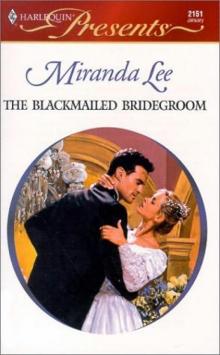 Miranda Lee -The Blackmailed Bridegroom
Miranda Lee -The Blackmailed Bridegroom The Seashell Anthology of Great Poetry
The Seashell Anthology of Great Poetry Dragon Moon
Dragon Moon The Social Costs of Pornography: A Collection of Papers
The Social Costs of Pornography: A Collection of Papers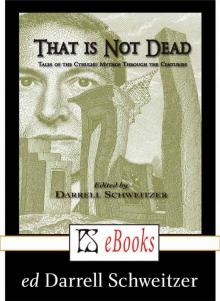 That Is Not Dead
That Is Not Dead Best New Horror: Volume 25 (Mammoth Book of Best New Horror)
Best New Horror: Volume 25 (Mammoth Book of Best New Horror) This Christmas by J. M. Snyder
This Christmas by J. M. Snyder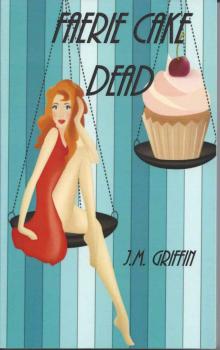 Faerie Cake Dead
Faerie Cake Dead CS-Dante's Twins
CS-Dante's Twins EFD1: Starship Goodwords (EFD Anthology Series from Carrick Publishing)
EFD1: Starship Goodwords (EFD Anthology Series from Carrick Publishing) Echo Burning by Lee Child
Echo Burning by Lee Child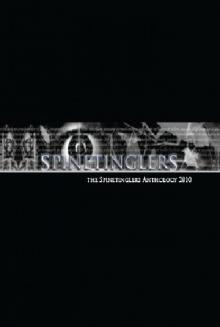 The Spinetinglers Anthology 2010
The Spinetinglers Anthology 2010 Wild Hearts
Wild Hearts Violet Winspear - Sinner ...
Violet Winspear - Sinner ... Broken Angels
Broken Angels FearNoEvil
FearNoEvil![Santiago, Lara - Range War Bride [Tasty Treats 11] (Siren Publishing PolyAmour) Read online](http://i1.bookreadfree.com/i1/03/30/santiago_lara_-_range_war_bride_tasty_treats_11_siren_publishing_polyamour_preview.jpg) Santiago, Lara - Range War Bride [Tasty Treats 11] (Siren Publishing PolyAmour)
Santiago, Lara - Range War Bride [Tasty Treats 11] (Siren Publishing PolyAmour) 8 Great Hebrew Short Novels
8 Great Hebrew Short Novels This Is How You Die: Stories of the Inscrutable, Infallible, Inescapable Machine of Death
This Is How You Die: Stories of the Inscrutable, Infallible, Inescapable Machine of Death The Steampowered Globe
The Steampowered Globe While We Wait by J. M. Snyder
While We Wait by J. M. Snyder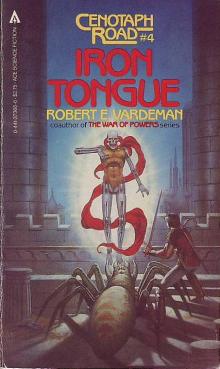 Iron Tongue cr-4
Iron Tongue cr-4![Stieg Larsson [Millennium 02] The Girl Who Played with Fire v5.0 (LIT) Read online](http://i1.bookreadfree.com/i1/03/31/stieg_larsson_millennium_02_the_girl_who_played_with_fire_v5_0_lit_preview.jpg) Stieg Larsson [Millennium 02] The Girl Who Played with Fire v5.0 (LIT)
Stieg Larsson [Millennium 02] The Girl Who Played with Fire v5.0 (LIT)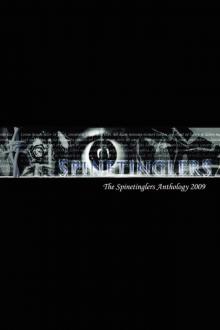 The Spinetinglers Anthology 2009
The Spinetinglers Anthology 2009 Bowles, Jan - Branded by the Texas Rancher (Siren Publishing Classic)
Bowles, Jan - Branded by the Texas Rancher (Siren Publishing Classic) Brown, Berengaria - Vivienne's Vacation (Siren Publishing Ménage and More)
Brown, Berengaria - Vivienne's Vacation (Siren Publishing Ménage and More) Inheritors
Inheritors Arthur Conan Doyle: A Life in Letters
Arthur Conan Doyle: A Life in Letters Cunningham, Pat - Coyote Moon (BookStrand Publishing Romance)
Cunningham, Pat - Coyote Moon (BookStrand Publishing Romance) Static Line
Static Line Ghost Mysteries & Sassy Witches (Cozy Mystery Multi-Novel Anthology)
Ghost Mysteries & Sassy Witches (Cozy Mystery Multi-Novel Anthology) Elizabeth Neff Walker - Puppy Love
Elizabeth Neff Walker - Puppy Love Ghosts in the Machine
Ghosts in the Machine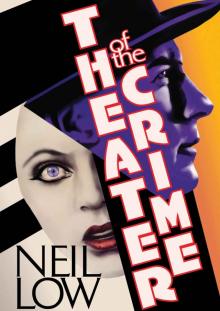 Theater of the Crime (Alan Stewart and Vera Deward Murder Mysteries Book 6)
Theater of the Crime (Alan Stewart and Vera Deward Murder Mysteries Book 6) Red Satin Lips, Book One (The Surrender Series)
Red Satin Lips, Book One (The Surrender Series) Catherine Coulter - FBI 4 The Edge
Catherine Coulter - FBI 4 The Edge StateoftheUnion
StateoftheUnion Fantastic Women: 18 Tales of the Surreal and the Sublime from Tin House
Fantastic Women: 18 Tales of the Surreal and the Sublime from Tin House Sara Wood-Expectant Mistress original
Sara Wood-Expectant Mistress original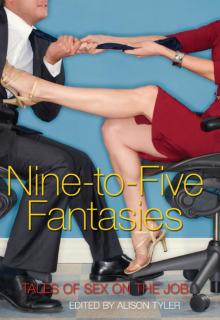 Nine-to-Five Fantasies: Tales of Sex on the Job
Nine-to-Five Fantasies: Tales of Sex on the Job Granta 133
Granta 133 Dream Quest
Dream Quest The Warlock in Spite of Himself wisoh-2
The Warlock in Spite of Himself wisoh-2 Glenn, Stormy - Mating Heat (Siren Publishing Ménage Amour)
Glenn, Stormy - Mating Heat (Siren Publishing Ménage Amour) Davis, Lexie - Toys from Santa (Siren Publishing Classic)
Davis, Lexie - Toys from Santa (Siren Publishing Classic) Once Dead, Twice Shy
Once Dead, Twice Shy McSweeney's Enchanted Chamber of Astonishing Stories
McSweeney's Enchanted Chamber of Astonishing Stories Zombies: Shambling Through the Ages
Zombies: Shambling Through the Ages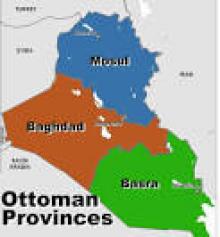 Baghdad Without a Map
Baghdad Without a Map Banshee Cries (the walker papers)
Banshee Cries (the walker papers)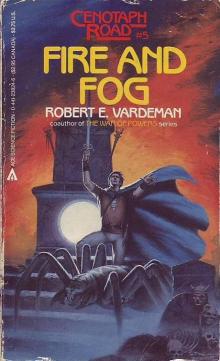 Fire and Fog cr-5
Fire and Fog cr-5 The Twelve Hot Days of Christmas
The Twelve Hot Days of Christmas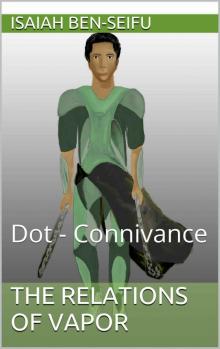 The Relations of Vapor: Dot - Connivance
The Relations of Vapor: Dot - Connivance![Harris, Daisy - Mere Temptation [Ocean Shifters 1] (Siren Publishing Classic) Read online](http://i1.bookreadfree.com/i2/04/11/harris_daisy_-_mere_temptation_ocean_shifters_1_siren_publishing_classic_preview.jpg) Harris, Daisy - Mere Temptation [Ocean Shifters 1] (Siren Publishing Classic)
Harris, Daisy - Mere Temptation [Ocean Shifters 1] (Siren Publishing Classic)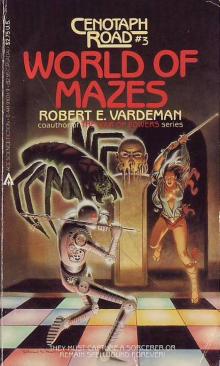 World of Mazes cr-3
World of Mazes cr-3 Mistaken Identity (A Jules Poiret Mystery Book 26)
Mistaken Identity (A Jules Poiret Mystery Book 26) Star Trek - DS9 - Fall of Terok Nor
Star Trek - DS9 - Fall of Terok Nor Not Like I'm Jealous or Anything: The Jealousy Book (Ruby Oliver)
Not Like I'm Jealous or Anything: The Jealousy Book (Ruby Oliver) Skaterboy by J. M. Snyder
Skaterboy by J. M. Snyder The Sorcerer_s Skull cr-2
The Sorcerer_s Skull cr-2 The Columbia Anthology of Modern Japanese Literature (Modern Asian Literature Series)
The Columbia Anthology of Modern Japanese Literature (Modern Asian Literature Series) New Erotica 5
New Erotica 5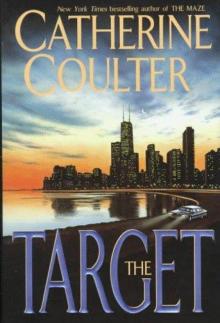 Catherine Coulter - FBI 3 The Target
Catherine Coulter - FBI 3 The Target Best Sex Writing 2013: The State of Today's Sexual Culture
Best Sex Writing 2013: The State of Today's Sexual Culture Factoring Humanity
Factoring Humanity Huia Short Stories 11
Huia Short Stories 11 Call of the Wilds
Call of the Wilds Great English Short Stories (Dover Thrift Editions)
Great English Short Stories (Dover Thrift Editions)![Ramagos, Tonya - Logan's Lessons [Sunset Cowboys 2] (Siren Publishing Classic) Read online](http://i1.bookreadfree.com/i2/04/10/ramagos_tonya_-_logans_lessons_sunset_cowboys_2_siren_publishing_classic_preview.jpg) Ramagos, Tonya - Logan's Lessons [Sunset Cowboys 2] (Siren Publishing Classic)
Ramagos, Tonya - Logan's Lessons [Sunset Cowboys 2] (Siren Publishing Classic)![Morgan, Nicole - Sweet Redemption [Sweet Awakenings 1] (Siren Publishing Allure) Read online](http://i1.bookreadfree.com/i2/04/10/morgan_nicole_-_sweet_redemption_sweet_awakenings_1_siren_publishing_allure_preview.jpg) Morgan, Nicole - Sweet Redemption [Sweet Awakenings 1] (Siren Publishing Allure)
Morgan, Nicole - Sweet Redemption [Sweet Awakenings 1] (Siren Publishing Allure) Warbirds of Mars: Stories of the Fight!
Warbirds of Mars: Stories of the Fight! Original Version of Edited Godwin Stories(lit)
Original Version of Edited Godwin Stories(lit) Where The Hell is Boulevard?
Where The Hell is Boulevard?![Chemical [se]X Read online](http://i1.bookreadfree.com/i2/04/13/chemical_sex_preview.jpg) Chemical [se]X
Chemical [se]X Allison Brennan - See No Evil
Allison Brennan - See No Evil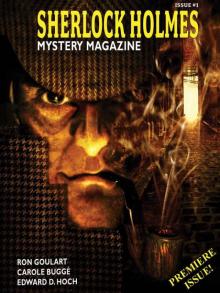 Sherlock Holmes Mystery Magazine #1
Sherlock Holmes Mystery Magazine #1